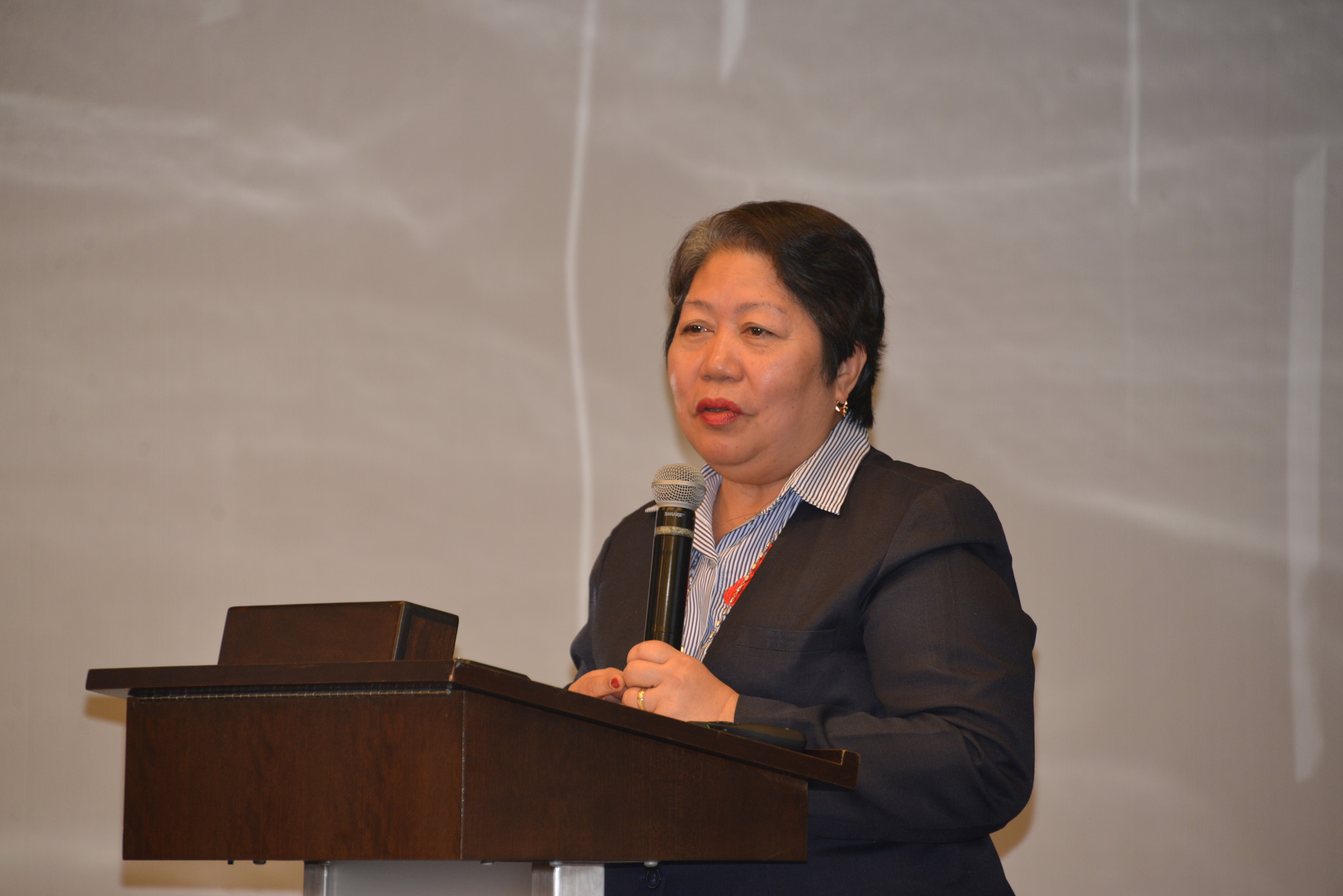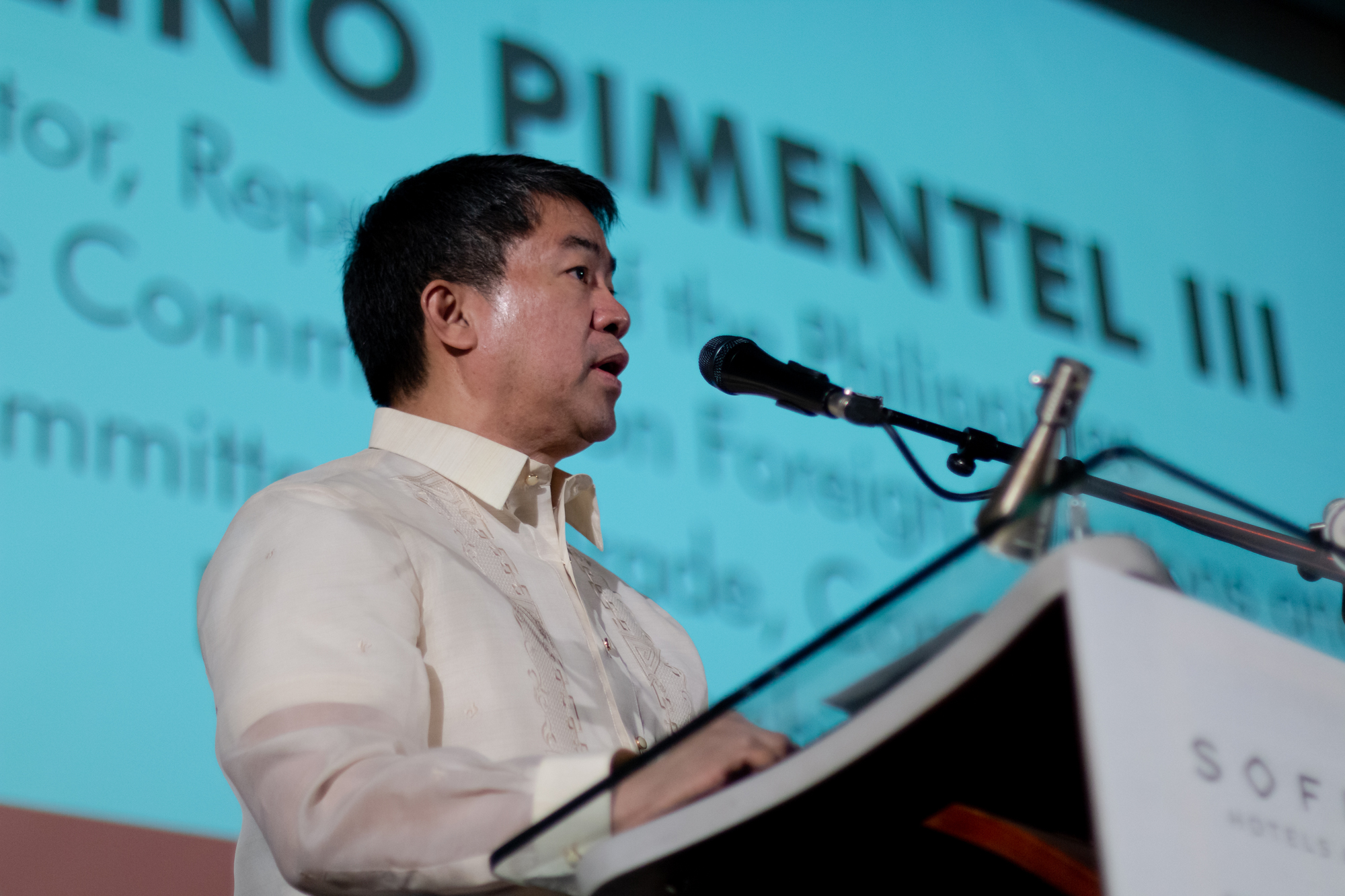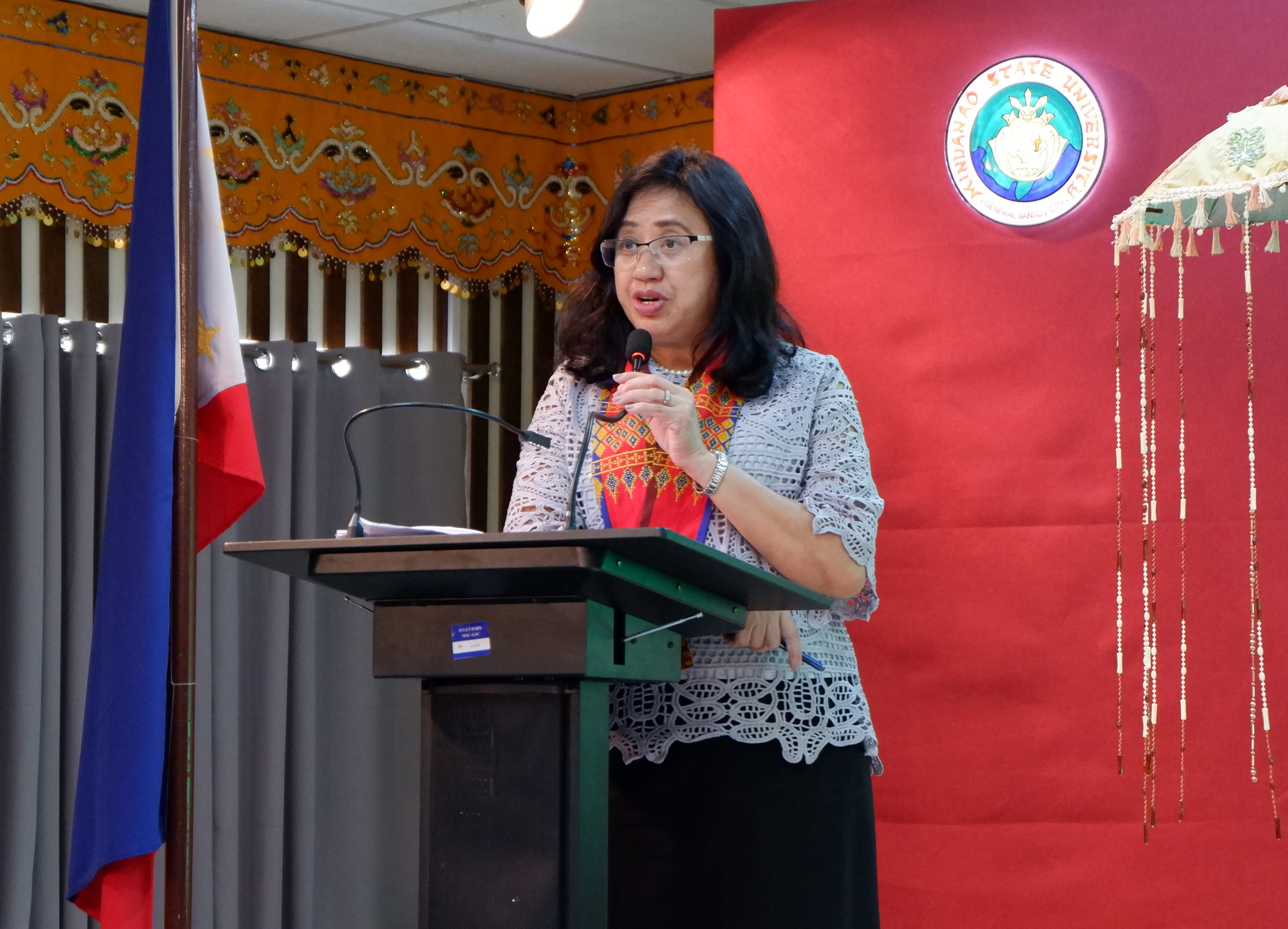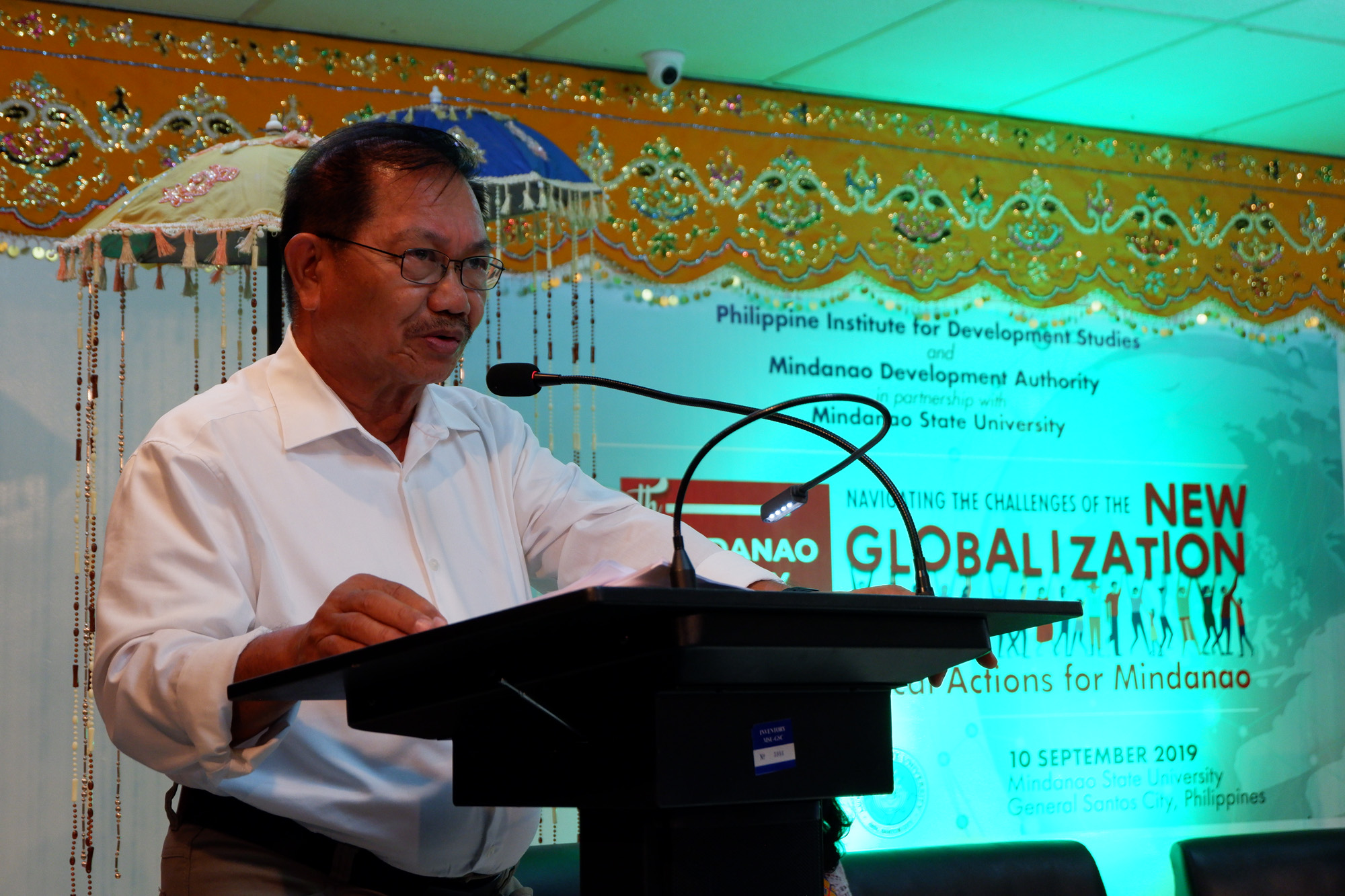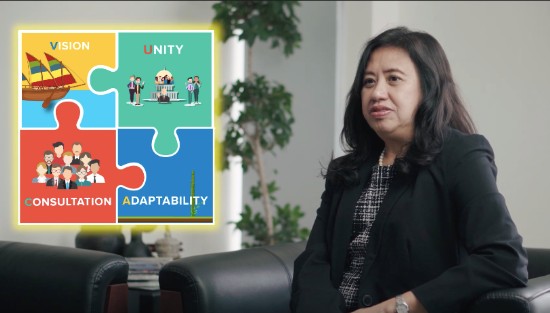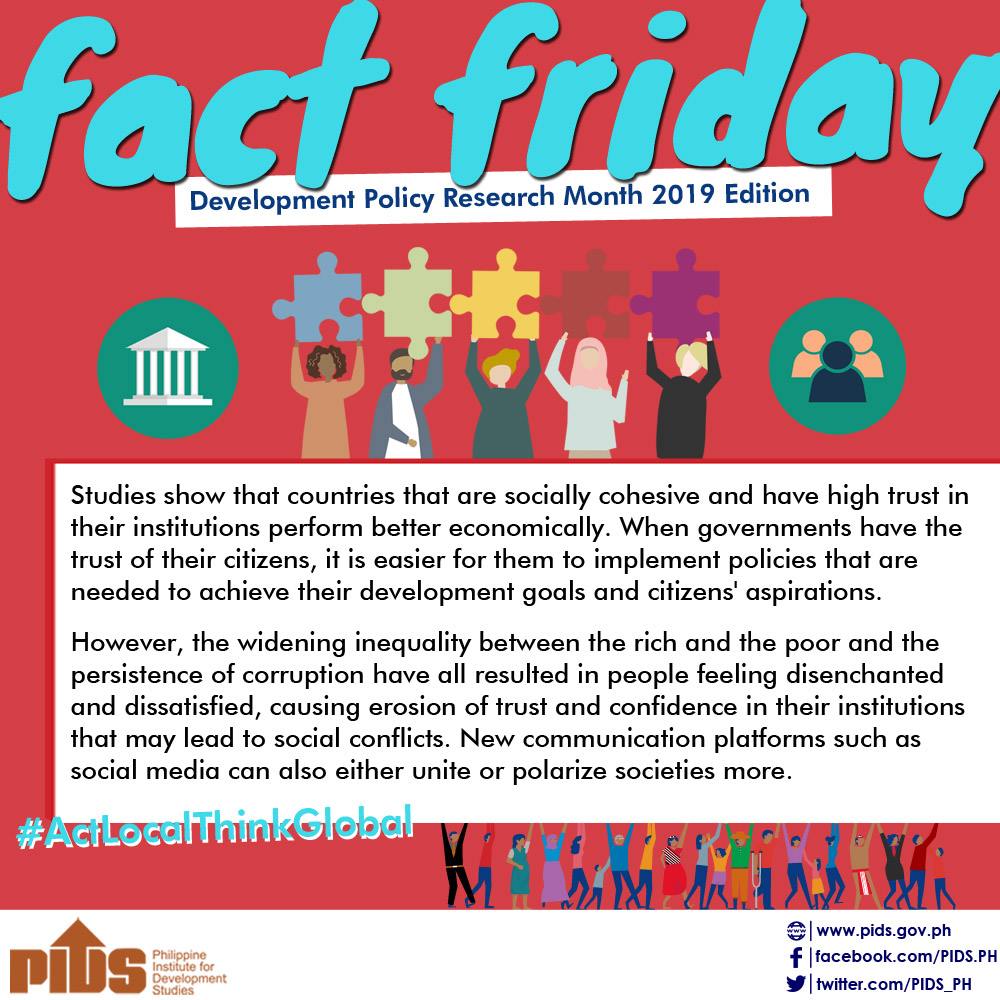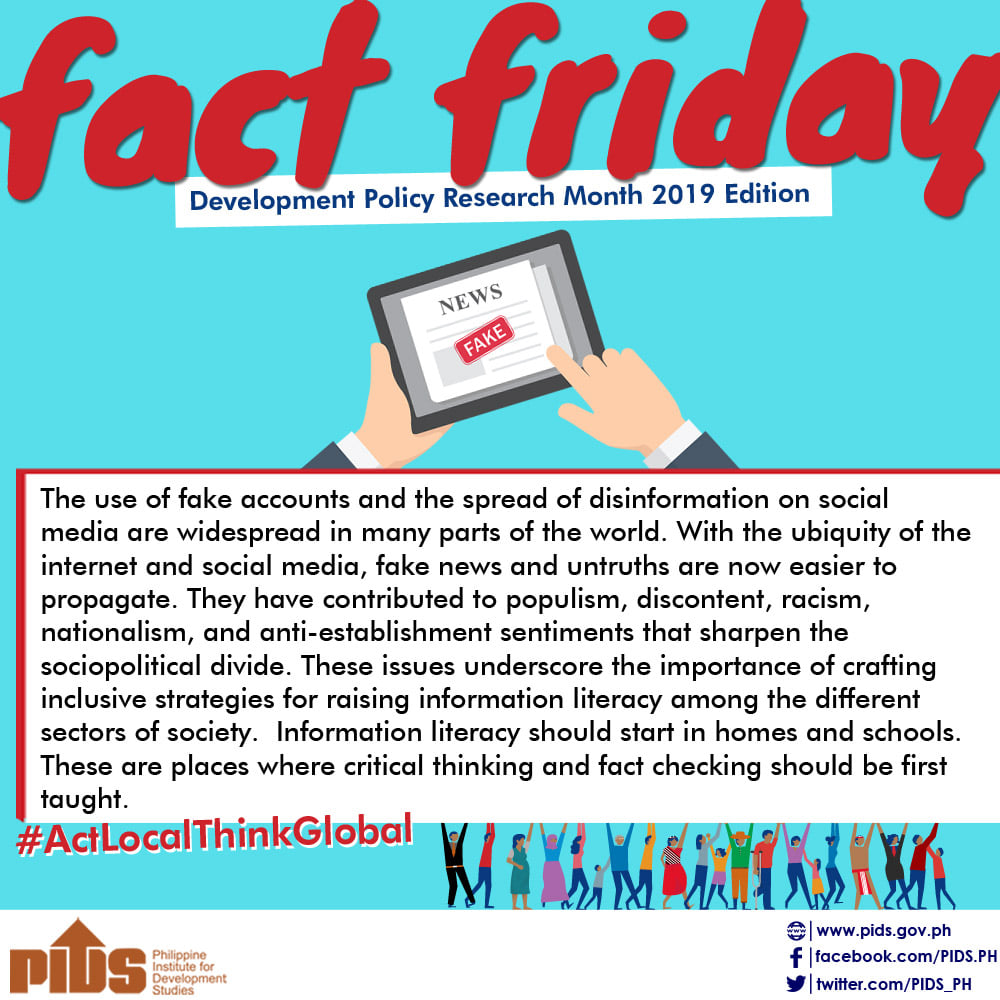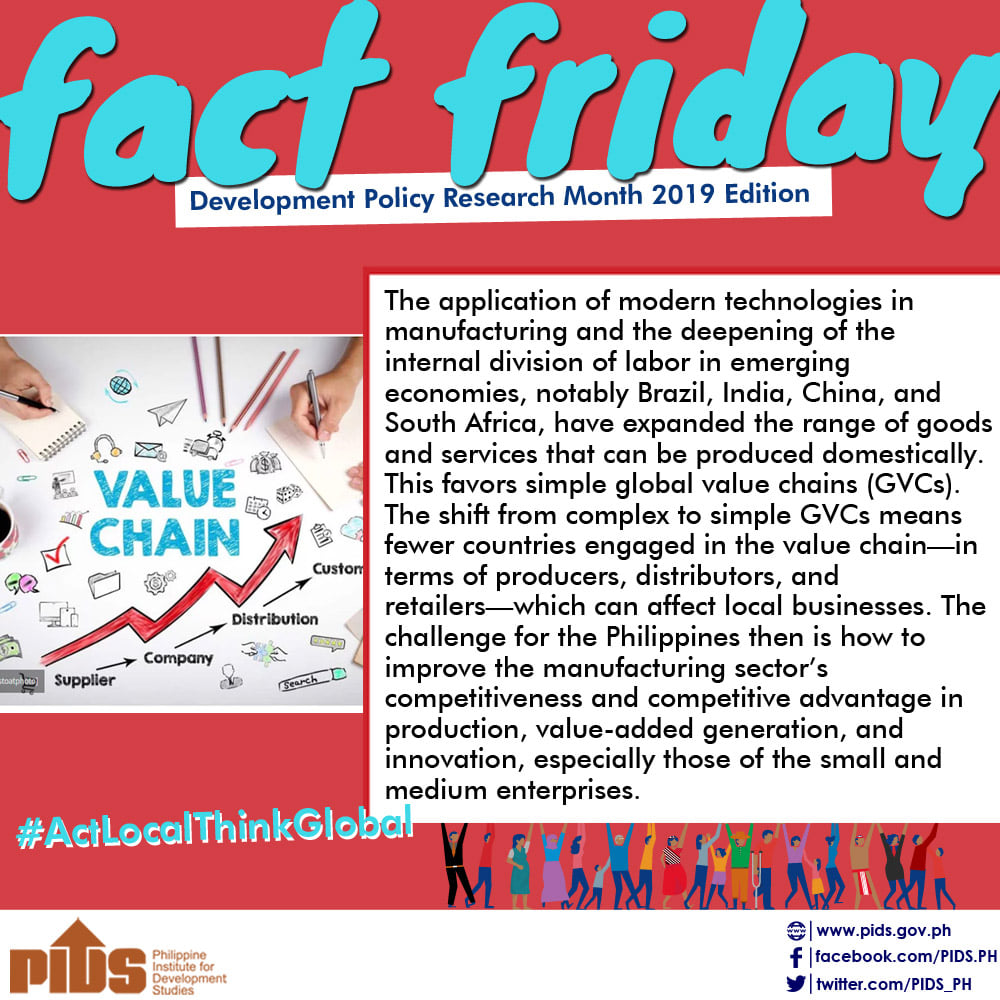Having trouble reading this email? View it in your browser. |
||||
 |
||||
|
||||
POLICY NOTES
In January 2018, the first package of the Tax Reform for Acceleration and Inclusion (TRAIN) Law took effect, adjusting, among others, the excise tax rates on fossil fuel and petroleum products. This Policy Note discusses the impacts of such adjustment on productive activities and prices across the economy. It finds that the increase in fuel excise taxes would have a slight impact on sectoral outputs and prices, and therefore on household welfare through incomes and employment. Sectors that are energy-intensive would also see a slight decline in output and there would be a slight increase in poverty given higher prices. Nonetheless, the tax reform would also lead to increased economic activity following increased consumption brought about by lower income tax rates, especially among the highest income deciles. This analysis leads to several considerations that policymakers must undertake in designing tax policies, such as the impact of the policy reform on the welfare of the poorer sectors in the country. Click here to download the policy note.
PN 2019-10: Impacts of TRAIN Fuel Excise Taxes on Employment and Poverty This Policy Note discusses the impacts on poverty and employment of the increased fuel excise tax rates under the first package of the Tax Reform for Accelerated Inclusion (TRAIN) Law. Among others, it finds that the general price increase resulting from new excise tax rates on fuels slightly increased poverty incidence, particularly among farmers and transport workers. Nonetheless, the law’s provision on unconditional cash transfer mitigated such increase in poverty. In terms of employment, the net effect was positive, wherein the total employment still grew. Still, employment in some sectors suffered from reduced level of economic activities. Although overall employment may still increase, the transition from one work to another may become costly for some workers. To address this issue, this study calls for the crafting of active labor market policies, such as direct employment creation, and passive labor market policies especially those that link workers to available work useful in minimizing the welfare loss of workers. Click here to download the policy note.
|
November 27, 2019, 1PM–5PM October 16, 2019, 1PM–5PM -----------------------------------------
CLICK HERE for the guidelines in the preparation of articles. Submissions and inquiries may be sent to PJD@mail.pids.gov.ph. |
|||
As with achieving the country’s Sustainable Development Goal (SDG) targets, local government units play a major role in responding to the challenges of the New Globalization.
“The Philippines must be prepared to newness not only in globalization but also in everything.”
The government is exerting efforts to improve the access of ethnic groups to education, especially those who are in Mindanao, said Philippine Institute for Development Studies (PIDS) President Celia Reyes. “One of the drivers of the New Globalization is the Fourth Industrial Revolution. For us to be able to take advantage of the advances of modern technologies, READ MORE
Local farmers in Mindanao need to adopt new technologies in agriculture, particularly in rice farming, to increase productivity. “The New Globalization is a double-edged sword. If you are prepared for it [then] you will benefit from it. [But] if you are not prepared, woe to you. READ MORE
As the world enters the fourth phase of globalization—described by experts as full of volatility, uncertainty, complexity, and ambiguity, or in short, VUCA—state think tank Philippine Institute for Development Studies (PIDS) proposes its own VUCA (vision, unity, consultation, and adaptability) as antidote to the complex challenges that the new era of globalization brings.
The past waves of globalization saw the rapid growth of world trade, often accompanied by cross-border investment, and with one or more countries serving as an economic hub. | ||||
FACT FRIDAY Every Friday, PIDS releases nuggets of research results culled from different PIDS studies. Here are the latest #PIDSFactFriday issues. Like us on Facebook for more #PIDSFactFriday issues. |
||||
Need help? Have feedback? Feel free to contact us. © 2018 Philippine Institute for Development Studies.
|
||||
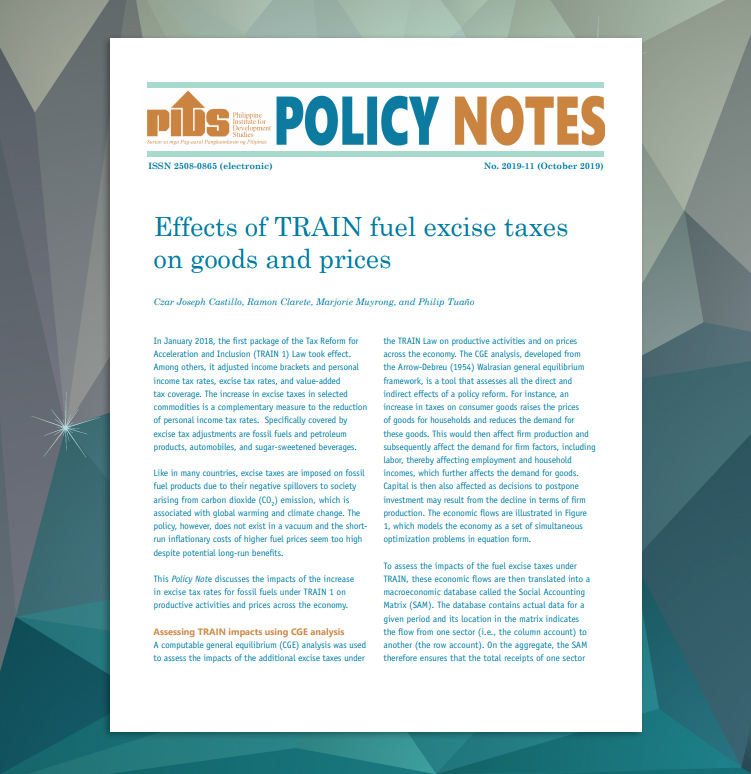
.jpg)
